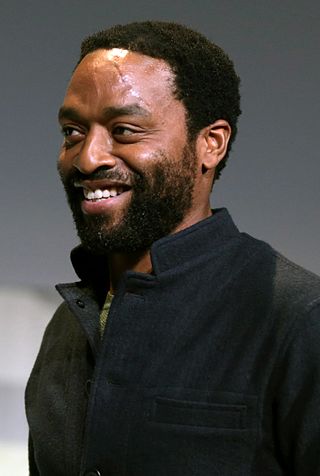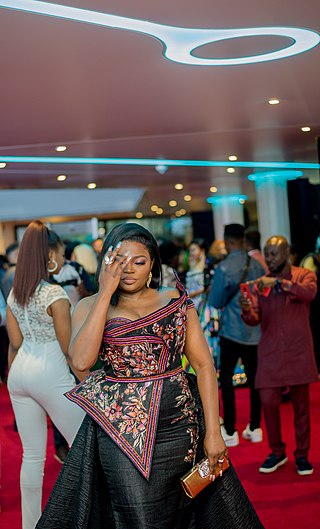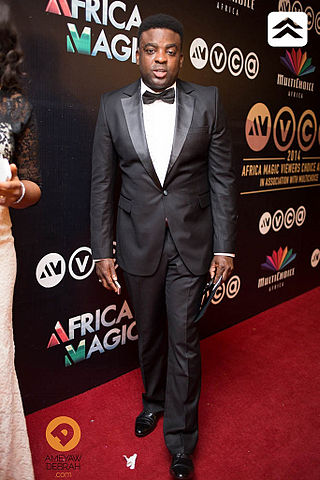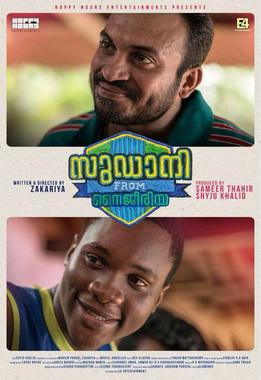
Nigeria, officially the Federal Republic of Nigeria, is a country in West Africa. It is situated between the Sahel to the north and the Gulf of Guinea to the south in the Atlantic Ocean. It covers an area of 923,769 square kilometres (356,669 sq mi). With a population of more than 230 million, it is the most populous country in Africa, and the world's sixth-most populous country. Nigeria borders Niger in the north, Chad in the northeast, Cameroon in the east, and Benin in the west. Nigeria is a federal republic comprising 36 states and the Federal Capital Territory, where its capital, Abuja, is located. The largest city in Nigeria is Lagos, one of the largest metropolitan areas in the world and the largest in Africa.

Lagos, or Lagos City, is a large metropolitan city in southwestern Nigeria. With an upper population estimate of 21 million, it is the largest city in Nigeria, and the most populous urban area on the African continent. Lagos was the national capital of Nigeria until the government's December 1991 decision to move their capital to Abuja in the centre of the country. Lagos is a major African financial centre and is the economic hub of Lagos State and Nigeria at large. The city has a significant influence on commerce, entertainment, technology, education, politics, tourism, art, and fashion in Africa. Lagos is also among the top ten of the world's fastest-growing cities and urban areas. In 2024, Time Out magazine ranked Lagos as the 19th Best City to visit in the World. A megacity, it has the fourth-highest GDP in Africa, and houses one of the largest and busiest seaports on the continent. Due to the large urban population and port traffic volumes, Lagos is classified as a Medium-Port Megacity.

The cinema of Nigeria, often referred to informally as Nollywood, consists of films produced in Nigeria; its history dates back to as early as the late 19th century and into the colonial era in the early 20th century. The history and development of the Nigerian motion picture industry is sometimes generally classified in four main eras: the Colonial era, Golden Age era, Video film era and the emerging New Nigerian cinema era.

Chiwetel Umeadi Ejiofor is a British actor, screenwriter, and film director. The recipient of various accolades, including a British Academy Film Award and a Laurence Olivier Award in addition to nominations for an Academy Award, two Primetime Emmy Awards, three Screen Actors Guild Awards and five Golden Globe Awards. In 2008, he was appointed Officer of the Order of the British Empire (OBE) by Queen Elizabeth II for services to the arts. He was elevated to Commander of the Order of the British Empire (CBE) in the 2015 Birthday Honours.

Genevieve Nnaji is a Nigerian actress, producer, and director. She won the Africa Movie Academy Award for Best Actress in a Leading Role in 2005, making her the first actor to win the award. In 2011, she was honoured as a Member of the Order of the Federal Republic by the Nigerian government for her contributions to Nollywood. Her directorial debut movie, Lionheart, is the first Netflix film from Nigeria and the first Nigerian submission for the Oscars. The movie was disqualified for having most of its dialogue in English. After having spent decades in the movie industry, she was profiled alongside some celebrities and business executives in 2020 in two new books by publisher and Editor in Chief of Yes International! magazine, Azuh Arinze.

Omotola Jalade Ekeinde, is a Nigerian actress, singer, philanthropist and former model. Since her Nollywood film debut in 1995, Ekeinde has appeared in over 300 films, selling millions of copies. Omotola is the second Nigerian and first Nigerian celebrity to receive over 1 million likes on her Facebook page. She currently has a total of 3 million followers on Facebook.
Articles related to Nigeria include:

Olufunke Ayotunde Akindele popularly known as Funke Akindele or Jenifa, is a Nigerian filmmaker, actress, director, producer, politician and realtor. Akindele starred in the sitcom I Need to Know from 1998 to 2002 and in 2009, she won the Africa Movie Academy Award for Best Actress in a Leading Role, for her role in Jenifa, which brought her to fame. Akindele reprised the role in 2011 sequel The Return of Jenifa and 2015 soft reboot television series titled Jenifa's Diary, for which she was named the Best Actress in a Comedy at the 2016 and 2017 Africa Magic Viewers Choice Awards. Akindele won the same award in 2020 and 2022, making it her fifth win for the Best Actress in a Comedy category. Akindele is the most nominated actress/filmmaker at the AMVCA and holds the record for most wins for an actress with six. She is the second director to gross over a billion naira at box office and is currently the Highest-Grossing Director in Nigerian Box Office with a total gross of over ₦2.9 billion.

The Africa Movie Academy Awards, popularly known as AMAA and The AMA Awards, are presented annually to recognize excellence among professionals working in, or non-African professionals who have contributed to, the African film industry. It was founded by Peace Anyiam-Osigwe and is run through the Africa Film Academy. The awards are aimed at honouring and promoting excellence in the African movie industry as well as uniting the African continent through arts and culture.

Kunle Afolayan is a Nigerian actor, producer, and director. He is credited for elevating the quality of Nollywood movies through larger budgets, shooting on 35mm, releasing in cinemas, and improving cliché Nollywood storylines. After starting his film career as an actor in the 1999 political drama Saworoide, Afolayan made his directorial debut in 2006 with Irapada, a Nigerian supernatural thriller, which won the Africa Movie Academy Award for Best Film in an African Language. His subsequent directing credits include The Figurine, Phone Swap, October 1, and Citation.

Clarence Abiodun Peters is a Nigerian music video director, filmmaker and cinematographer. He is the founder and CEO of CAPital Dream Pictures, a production company that specializes in performing arts, film and video. He is also the founder and CEO of Capital Hill Records, a record label that was home to Chidinma, Tha Suspect and Illbliss. He was ranked 2nd on Channel O's list of the Top 10 Most Visionary Music Video Directors.
The Africa International Film Festival (AFRIFF) is an annual film festival that takes place in Nigeria. It was founded in 2010 with its Inaugural edition in Port Harcourt, Rivers State, Nigeria. AFRIFF was founded by Chioma Ude a passionate film buff and entrepreneur, The event normally spans through a week and it includes award shows and film training classes. Keith Shiri, the founder/director of Africa at the Pictures was one of the festival's artistic director of the festival. AFRIFF, through its Globe Awards, gives out honors in categories such Feature, Documentary, Short, Animation, and Students Short, as well as awards and prizes for Directing, Acting, and Screenplay. There are additional special awards for Audience Choice and an Outstanding Film Jury Award.

Golden Age or Golden era are terms used in Nigerian film history to designate the motion picture industry of Nigeria from the late 1950s to the late 1980s. It captures the mode of visual and sound production, as well as the method of distribution employed during this period. This period began with the formal recognition of the Nigerian Film Unit as a sector in 1954, with the first film entirely copyrighted to this unit being Fincho (1957) by Sam Zebba.

Nollywood, a portmanteau of Nigeria and Hollywood, is a sobriquet that originally referred to the Nigerian film industry. The origin of the term goes back to the early 2000s, traced to an article in The New York Times. Due to the history of evolving meanings and contexts, there is no clear or agreed-upon definition for the term, which has made it a subject of several controversies.

Sudani from Nigeria is a 2018 Indian Malayalam-language sports drama film written and directed by Zakariya Mohammed, with dialogues co-written by Muhsin Parari. Shyju Khalid was the cinematographer, who also produced the film with Sameer Thahir. It stars Soubin Shahir, with Samuel Abiola Robinson as the titular character.
Black film is a classification of film that has a broad definition relating to the film involving participation and/or representation of black people. The definition may involve the film having a black cast, a black crew, a black director, a black story, or a focus on black audiences. Academic Romi Crawford said, "I think a black film is a film work that takes into account in some way the relationship of African-Americans or blacks from the African Diaspora to filmmaking practice, means and industry. For me, it's in that relation between blacks and the film industry. How one engages in that relationship can be a mixture of black director and black acting talent; black director and black content in story; black content in story, no black director; black production money, nothing else that reads as black."












